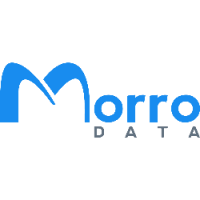Upgrade to Cloud NAS: Transform Your Windows File Server
Upgrade Your Windows File Server to Global Cloud NAS
The need for efficient and scalable data management solutions has never been more critical these days. Windows file servers have long served millions of customers, providing data storage and access for organizations. However, with the emergence of cloud technologies, the landscape of server options has expanded, offering customers many choices for their data storage needs. As businesses navigate this evolving terrain, it becomes imperative to assess the efficacy of traditional Windows file servers in meeting modern requirements. In this blog post, we’ll explore the challenges associated with traditional Windows file servers and delve into the benefits of transitioning to Cloud NAS—a modern, cloud-based file storage solution.
The Limitations of Windows File Servers
Windows file servers have served us well, but they come with their fair share of limitations. Let’s delve into some of these limitations:
- Scalability Issues: Windows file servers often struggle to handle the growing volume of data generated by modern businesses. As your organization expands, you may encounter challenges in scaling your Windows file server infrastructure to accommodate increasing storage needs.
- Complex Management Processes: Managing multiple Windows file servers distributed across different locations can be a daunting task. With Windows file servers, centralized management becomes difficult, leading to inefficiencies and potential security vulnerabilities.
- Limited Accessibility: Accessing files stored on Windows file servers from remote locations can be cumbersome and inefficient. Employees working remotely or on-the-go may experience difficulties accessing critical files, leading to decreased productivity and collaboration.
- Scattered File Servers: In organizations with multiple locations or remote offices, Windows file servers are often scattered across different sites, leading to data silos and fragmented storage environments. This decentralization can hinder collaboration and create inconsistencies in data management practices.
Additionally, with the end of support for Windows File Server 2012 in October last year and Windows File Server 2016 slated to end support in 2027, now is the perfect time to switch to a cloud-based file server solution.
Comparing Windows File Server and Cloud NAS Storage Solution
Morro Data Cloud NAS offers a comprehensive solution for modern file storage needs. With the ability to sync files between cloud and on-premises environments, organizations can seamlessly access and manage their data from anywhere. Utilizing the SMB protocol, Morro Data Cloud NAS ensures efficient file access and collaboration among users.
|
|
Morro Data Cloud NAS |
Windows File Server |
|
Solution Overview |
Sync files between cloud and on-prem |
No |
|
File Access |
SMB protocol |
SMB protocol |
|
Features |
Real-Time Collaboration for Design and Office |
No |
|
Disaster Recovery |
No |
|
|
Data Migration |
Morro Migrate |
No |
|
Cloud-Centric |
Seamless integration with cloud storage |
Amazon FSx for Windows File Server |
On the other hand, Windows File Server has been a staple in the industry for file storage. While it also supports the SMB protocol for file access, it lacks some of the advanced features offered by CloudNAS Global File System. Windows File Server does not provide real-time collaboration capabilities, nor does it offer built-in disaster recovery or file versioning features. Additionally, data migration tools like Morro Migrate are not available with Windows File Server.
In terms of cloud-centricity, Morro Data Cloud NAS shines with its seamless integration with cloud storage platforms, providing organizations with flexibility and scalability. Unlike Windows File Server, which is primarily on-premises focused, Morro Data Cloud NAS offers a global scope, enabling organizations to scale their storage infrastructure as needed to meet evolving business requirements.
Migration Process
Thinking about making the switch to Morro Data CloudNAS? We’ve got you covered. In this section, we’ll walk you through the migration process step by step, ensuring a smooth and seamless transition for your organization. Say goodbye to downtime and data loss.
Migrating file servers to the cloud can often be a complex and time-consuming endeavor. However, with Morro Migrate, the process is streamlined into three straightforward steps: Scan, Seed, and Upload.
Step 1: Scan
Morro Migrate begins by thoroughly examining the source share. By conducting a comprehensive scan, Morro Migrate identifies any issues present in your existing share, ensuring a smooth migration process.
Step 2: Seed
The next step involves mirroring the tree structure of the source server in the CacheDrive. Morro Migrate intelligently manages the available cache space on the CacheDrive to create the entire folder structure using stub files. Even if the capacity of your CacheDrive is smaller than that of your source share, Morro Migrate ensures that all your data is safely transferred to the cloud.
Step 3: Upload
Morro Migrate manages the file upload process from the source server to the cloud. This phase, which can be the longest, depends on both your upload bandwidth and the number of files being transferred. Throughout this stage, the CacheDrive acts as a proxy server for files, both in the cloud and still on the source server. This ensures that your organization maintains full access to all files while the migration process is underway, allowing for uninterrupted operations.
Ready to make the switch? Contact us today to learn more about Morro Data CloudNAS and start your journey toward better file storage.
